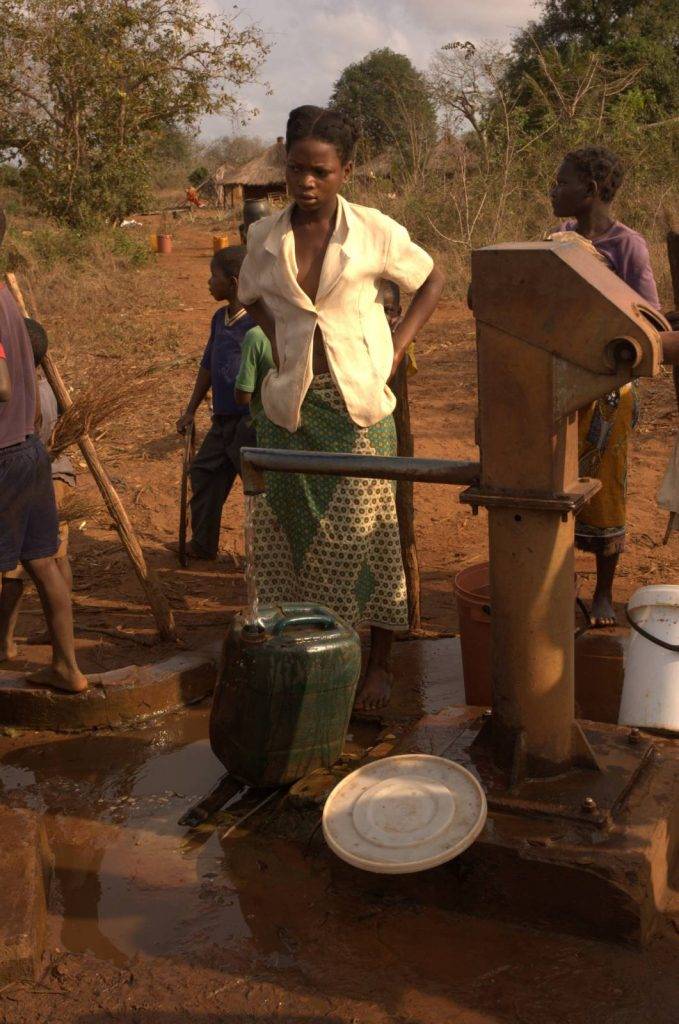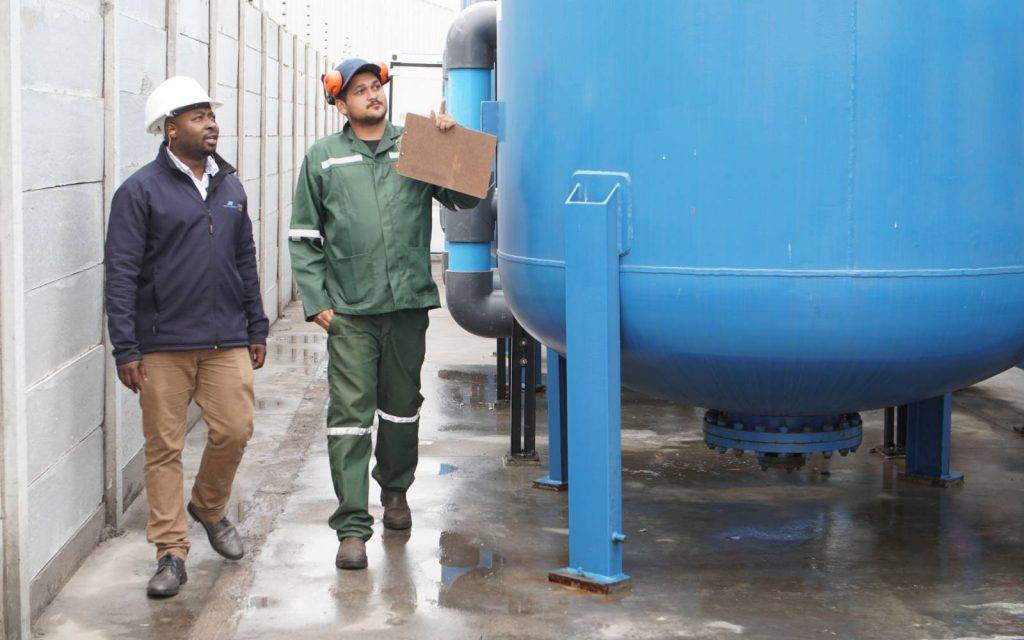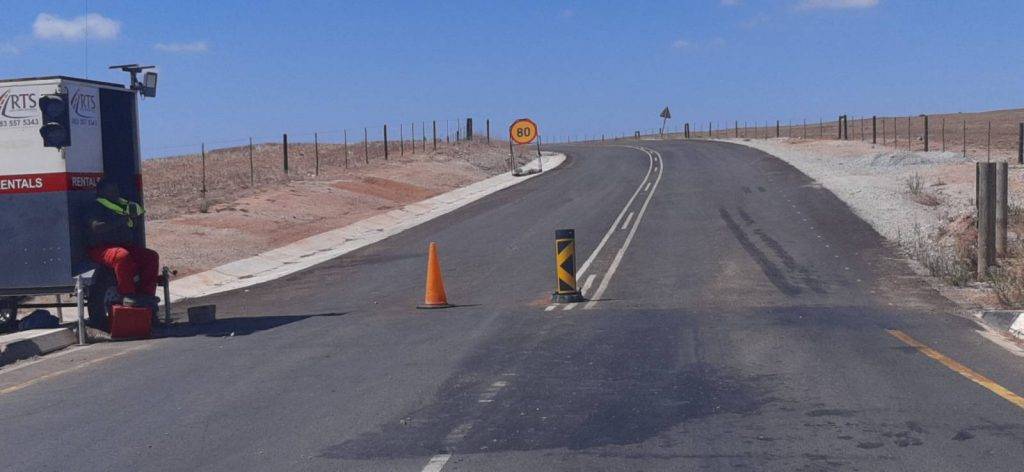Water insecurity exacerbates poverty, inequality and social tensions, and the most vulnerable communities are disproportionately affected.
‘We must do more’
South Africa needs to take action on climate change, but that in itself is not enough to save the water-scarce country and its people from an acute water crisis. Failing infrastructure, corruption, resource mismanagement and unsustainably high water demands coupled with inadequate supply must also be addressed if a humanitarian disaster is to be avoided.
World Water Day, observed annually on 22 March, set the tone for South Africa’s Water Week that followed, focusing on “Accelerating Change” to ensure access to and the sustainability of freshwater resources for all. The latest World Water Development Report, released in March 2023, warns that there is an “imminent risk” of a global water crisis, with more than two billion people worldwide lacking access to safe drinking water, and 3.6 billion people without safely managed sanitation.
In water-scarce South Africa, the situation is dire. In 2018, Cape Town became the first major city in the world to face Day Zero — the day when the taps would run dry. In 2022, the same threat loomed for the Eastern Cape’s Nelson Mandela Bay. The National Water and Sanitation Master plan predicts that by 2030, the country will face water supply deficits of around 17%. Experts are calling for urgent action to accelerate change in the country’s water sector and avert a humanitarian disaster as the country’s water crisis reaches a critical point.
Where does our water go?
According to the United Nations, the use of water in South Africa is dominated by the agricultural industry, with around 60% of all available water going toward irrigation; urban and domestic use constitute 30%, while the remainder is used for mining, bulk industries and power generation.
According to the Council for Scientific and Industrial Research (CSIR), South Africa is among the driest countries in the world, with an average annual rainfall of approximately 490mm, of which only approximately 10% ends up in the country’s rivers. While South Africa’s agriculture sector is the largest user, the CSIR says that industrial water use is the highest.
The Centre for Environmental Rights estimates that more than 5% of South Africa’s water goes towards coal mining and power generation, with a study from Greenpeace South Africa stating: “Eskom uses just over a staggering 10 000 litres of water a second, the same amount a single person would use in one year.”
Coal plants require direct use of water at every step of their supply chain, including the extraction and preparation of coal from mines, incineration at a coal-fired power station, dust and pollution control at mines and power stations and the disposal of the coal combustion by-products. Renewable energy solutions use far less water, and the closure of some of Eskom’s coal-fired water-cooled power stations will release billions of litres of water for domestic use.
This does not mean that individual action will not make a difference. According to the Institute for Security Studies (ISS) and the Water Research Commission, South Africans must also do more to conserve water; at 235 litres per person daily, the country’s per capita water consumption far exceeds the global average of 173 litres. “It is clear that the country is living beyond its water resources,” the report states.
An unrealised human right
While celebrating Water Week in the North West province’s Manamokgotheng village, Deputy Minister of Water and Sanitation David Mahlobo said that despite successes such as the newly constructed reservoir that will supply water to 4000 households in the Moses Kotane Local Municipality, there are still too many people who lack access to this critical resource.
Water is essential to overcoming poverty and addressing various other social and economic inequities, and is at the heart of achieving most, if not all, of the United Nations’ Sustainable Development Goals (SDGs). “We must do more,” Mahlobo acknowledged.
This is a sentiment echoed by the Executive Director of Amnesty International, Shenilla Mohamed. “South Africa’s water scarcity continues to be exacerbated by a lack of investment in infrastructure or technology, called economic water scarcity, and the ongoing climate crisis, yet the government is doing very little to mitigate the consequences this will have for everyone living in the country,” she said. “Access to water is a human right and not a privilege. The government must ensure that resources, such as water, in the country are protected. It is also obliged to guarantee that sufficient resources are allocated to ensure that all human rights are upheld.”
According to the organisation, around a third of people living in South Africa — about 20 million individuals — do not have access to safe or reliable drinking water. With 44% of the country’s water treatment works in poor or critical condition and more than 35% of South Africa’s water lost to leakages, Mohamed said it is not that the country has too little water, but that the water resources have not been properly developed, managed and conserved. “The mismanagement of public funds and corruption in South Africa’s water sector is a large contributing factor to the lack of direct investment in water to satisfy demand and access to water,” Mohamed said.
The way forward
Experts agree that to address the water crisis, South Africa needs to accelerate change and take bold actions that go beyond short-term fixes. This will require a multi-pronged approach that tackles the root causes of the crisis and builds a more resilient and sustainable water system. Investment in new dams, pipelines and treatment plants is needed, on top of the maintenance of existing infrastructure. This will improve the efficiency and reliability of the water system and reduce loss due to leaks and wastage. It will also create jobs and boost economic growth.
South Africa also needs to promote a culture of water conservation and demand management, while prioritising water allocation and governance. This will require a transparent and participatory process that involves all stakeholders, including communities, government and the private sector. Crucial to this is enforcing regulations and penalties for illegal water use and pollution.
Finally, South Africa needs to mainstream climate change adaptation into water management, and integrate water management principles with other sectors, such as energy and agriculture, to achieve synergies and avoid trade-offs.
Water insecurity has a far-reaching impact on South Africa and Africa’s economy, environment and social fabric. Vice-President of the African Development Bank, Dr Beth Dunford, said: “Water is an essential resource with direct impact on the continent’s economic potential: inadequate access to safe water, sanitation and hygiene services reduces economic opportunities.” It affects industries such as agriculture, mining and tourism, and poses a threat to biodiversity and ecosystems, which are critical for human wellbeing. It exacerbates poverty, inequality and social tensions, as the most vulnerable communities are disproportionately affected.
Water scarcity in South Africa hinders the achievement of several, if not all, of the UN SDGs, especially those related to food security, energy and social development, while exacerbating inequality and undermining efforts towards peace, justice and cohesion. Accelerating change in South Africa’s water sector is not only crucial for addressing the water crisis that directly threatens the lives and livelihoods of its people, but also for building a more equitable and resilient society. — Jamaine Krige
Water is a gendered issue
Approximately 250 million Africans live under extreme water stress, and only one in three South Africans have access to safe and reliable drinking water. While the impacts of water scarcity are widespread, these stresses are not equally born; women are hardest hit when waters run dry. It adds to household burdens, threatens economic opportunities and increases health risks in women. Being at the forefront of these challenges, however, also means that women are ideally suited to find solutions to the water challenges affecting them.
Access to water is at the core of daily household chores such as cooking, washing and caring for the ill, children and elderly. These tasks primarily fall on the shoulders of women, who are also often responsible for fetching water for their families. According to a report from the Institute of State Security (ISS), women and girls spend almost 200 million hours every day collecting water globally.
 A young woman collects water for her family in rural Mozambique. (Photo: Foeta Krige)
A young woman collects water for her family in rural Mozambique. (Photo: Foeta Krige)
This is especially relevant to South Africa, where water sources are scarce and often located far from rural households and communities. Water collection is a time-consuming and physically demanding task and limits opportunities: girls are more likely to drop out of school to help their mothers fetch water, and the time and energy spent fetching water cannot be spent on other income-generating activities. When women have to travel long distances in unsafe conditions, they are also more vulnerable to sexual violence and other crimes.
When there is more water in circulation, women have more opportunities, especially as agriculture is the primary source of income for many women in South Africa and across the continent. Droughts and water disruptions have a devastating impact on the industry and the women who rely on it for their daily bread. Data from the World Bank shows that female farmers are much more vulnerable to disasters than their male counterparts; they represent an estimated 80% of smallholder farmers in sub-Saharan Africa but less than 20% of landholders, and are also less likely to have bank accounts or access to saving in the event of a crisis.
Shaping tomorrow
Women, however, are not just victims of the water crisis; they are also agents of change who are playing an increasingly important role in finding solutions. According to the ISS, because they bear the brunt of climate impacts, women and girls are often at the forefront of developing effective adaptation strategies as food producers, caregivers, community leaders and stewards of natural resources: “They contribute different capabilities and responses to men based on their knowledge and experiences. Women across Africa play a central role in community resilience building and tend to extend their networks and resources to larger groups to benefit. Women have emerged as leaders in developing innovative solutions such as drought-resistant seeds and better soil management, or leading reforestation and restoration efforts.”
Women-led grassroots initiatives are increasingly leading innovation in the water sector, working to promote gender equality and ensure that women’s voices are heard in water governance and decision-making processes. These initiatives also provide a platform for women to share their experiences and perspectives, and to advocate for policies and programmes that address their specific needs and challenges.
In Columbia, the United Nations trained women on water canal management, which resulted in the restoration of 900 hectares of wetlands and helped make several communities less vulnerable to climate change.
Closer to home, Coca-Cola South Africa has partnered with the Department of Water and Sanitation to ensure water access for all. These initiatives, which focus on both environmental sustainability and the empowerment of women and other vulnerable groups, work at replenishing water sources and protecting and preserving water resources.
In partnership with government and local communities, the company has invested in clearing more than 3 400 hectares of invasive species in South Africa’s water systems. With no natural predators and water needs much higher than those of indigenous flora, these plants are a serious threat to water security and result in less available water.
Leave no one behind, to the benefit of all
According to the Secretary-General and Director of the United Nations Development Programme (UNDP) Crisis Bureau, Asako Okai, water and gender equity go hand in hand: “We strongly believe that improving gender equality is crucial to strengthening nations’ resilience to disasters. It is not just a human rights issue; failing to address it also undermines hard-fought development gains. It is important to remember that everywhere, at all times, gender inequality impedes global progress, and if left unaddressed, may represent an even bigger threat to development than disasters themselves.”
Including women in the conversation about water management and sustainability benefits everyone. Women’s participation in water governance can lead to more inclusive and effective policies and programmes that take into account the needs and perspectives of all members of society. Addressing the gender dimension of water insecurity is not only a matter of social justice but also essential for achieving sustainable and equitable water management.
Gender equality is one of the key principles of the 2030 Agenda for Sustainable Development, which calls for inclusive and participatory approaches to water governance and management. Investing in women’s empowerment and gender equality in the water sector is therefore not only the right thing to do, but also a smart investment in building a more sustainable and resilient water system for South Africa’s future. — Jamaine Krige
How a fishing company’s desalination project is helping to build a road
 One of two desalination plants that Oceana installed to ensure that water supply will never be an issue at its factories.
One of two desalination plants that Oceana installed to ensure that water supply will never be an issue at its factories.
Water, like electricity, is something taken for granted when it’s available — you turn on a switch or a tap and it’s there. It’s only when it isn’t that most people realise how massively important it is.
Of course, Capetonians, mindful of how close the city came to Day Zero five years ago may be somewhat less complacent, as no doubt the residents of Nelson Mandela Bay are now.
Events such as World Water Day (Wednesday 22 March) aim to focus attention on the importance of sustainable water use and raise awareness about the two billion people living without access to safe water globally.
In a water-scarce country such as South Africa, which has now had two major cities face the real prospect of running out of water, the annual observance is a stark reminder that fresh, potable water cannot be taken for granted.
As with the current national electricity crisis an integrated solution, with national and provincial and local government working together with private enterprise, is probably the best way to get results.
And it’s happening.
On the country’s arid West Coast there’s a road being built between the towns of Stompneusbaai and Vredenburg. Road construction requires a considerable amount of water — between 50 000 and 200 000 litres a kilometre, depending on the terrain and construction methods.
In the mid-latitude desert climate of the region, that’s potentially a considerable volume of water to draw from local resources.
Instead, the local municipality has teamed up with fishing group Oceana, which owns and operates two canning factories in the region for its Lucky Star range.
Oceana has for years implemented water saving and conservation initiatives in its plants, such as recycling waste water and installing rainwater harvesting systems. These have reduced reliance on municipal supply by between 30% and 40%.
After Cape Town’s water crisis in 2018, however, the Group realised it needed to be even less dependent on municipal supply.
 Oceana is helping the local government to build tar roads on the West Coast, using the excess water it generates from its desalination plants and water-saving measures
Oceana is helping the local government to build tar roads on the West Coast, using the excess water it generates from its desalination plants and water-saving measures
“We faced the real prospect of running out of water for our plants in St Helena Bay and Laaiplek,” explains CEO Neville Brink.
“We’re a major employer in the region, and suspending operations or closing the plants would directly affect the livelihood of 2 500 employees, with a considerable knock-on effect for the broader community. So we invested R35 million to build two desalination plants to serve the factories and ensure lack of water would not interrupt production or put jobs at risk.”
The move has been enormously successful. With the previous water-saving measures still place, the desalination plants produce more water than the factories require.
That’s how, in a marvellous piece of private-sector, local-government collaboration, a fishing company is helping the municipality to build a road.
Between October 2022 and January 2023 Oceana’s West Coast plants have donated over 26 million litres of water to facilitate the construction of six kilometres of road. The road-building project is due to be completed in April.
Brink says that their excess water will then be donated to other projects.
The Group is planning a similar approach to ensure its plants have reliable power and are able to operate around the clock — something that’s becoming essential as the straitened economy is driving increased household demand for affordable, nutritious protein, such as canned fish.
It aims to build a solar plant which will considerably lessen the Group’s reliance on Eskom supply, effectively freeing up more electricity for other users.
“The water project has proved what can be done. As well as securing jobs in a region where these are scarce, innovative, collaborative projects such as this help improve the standards of living for surrounding communities,” says Brink.